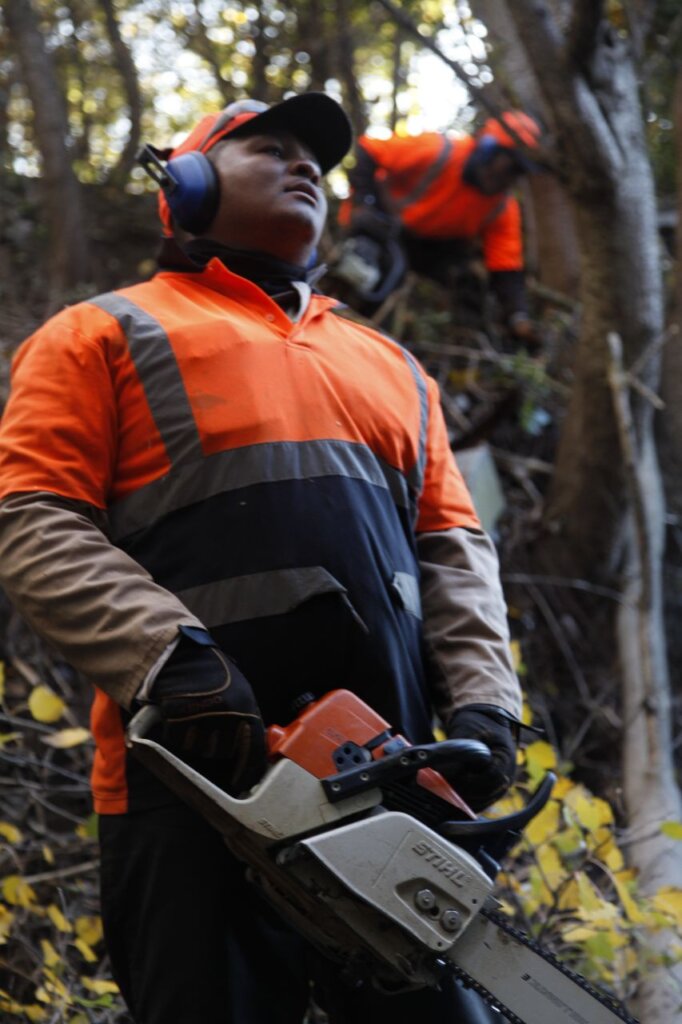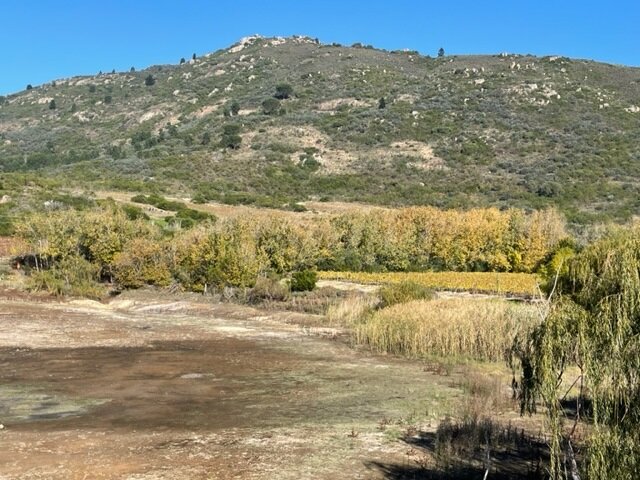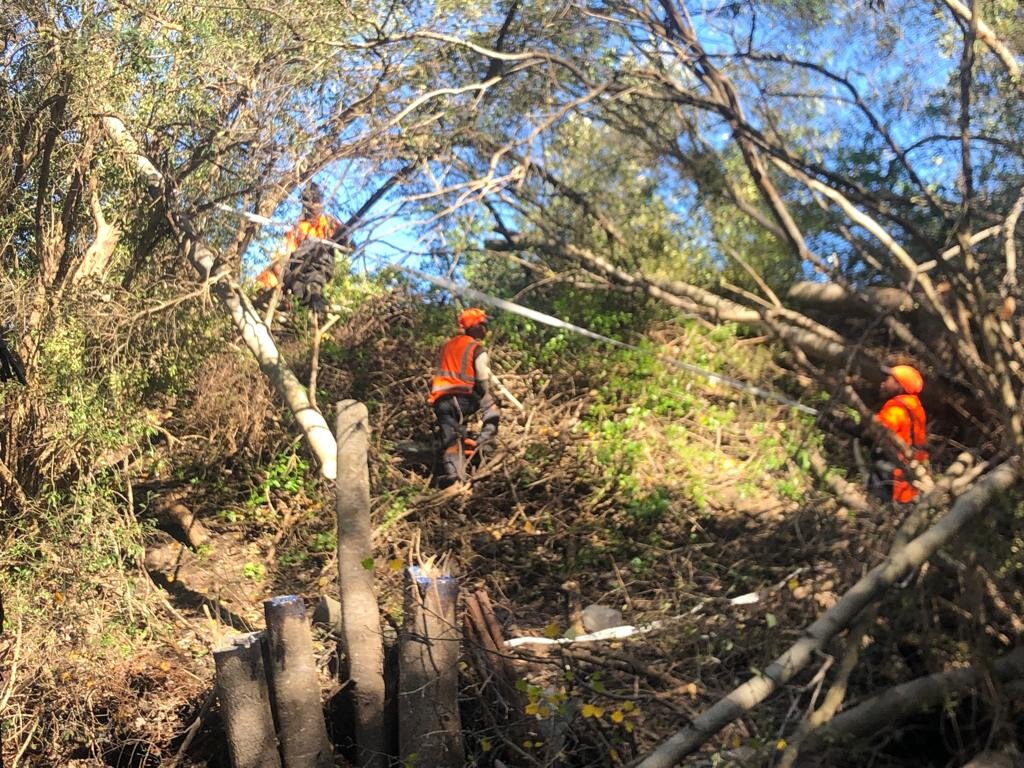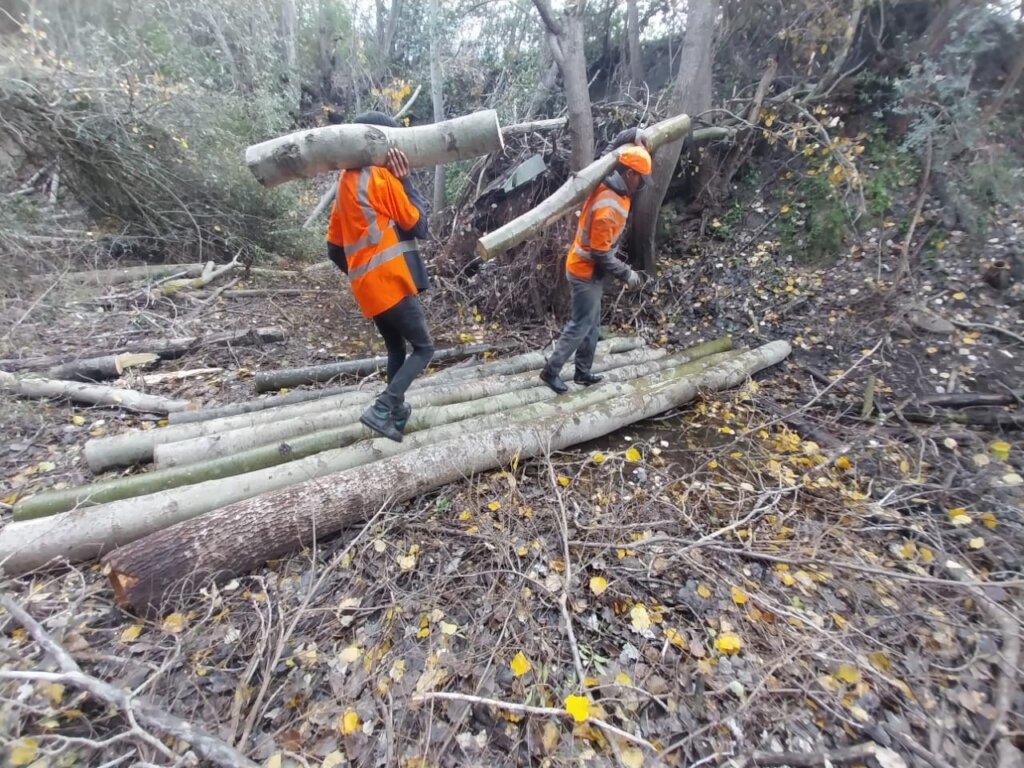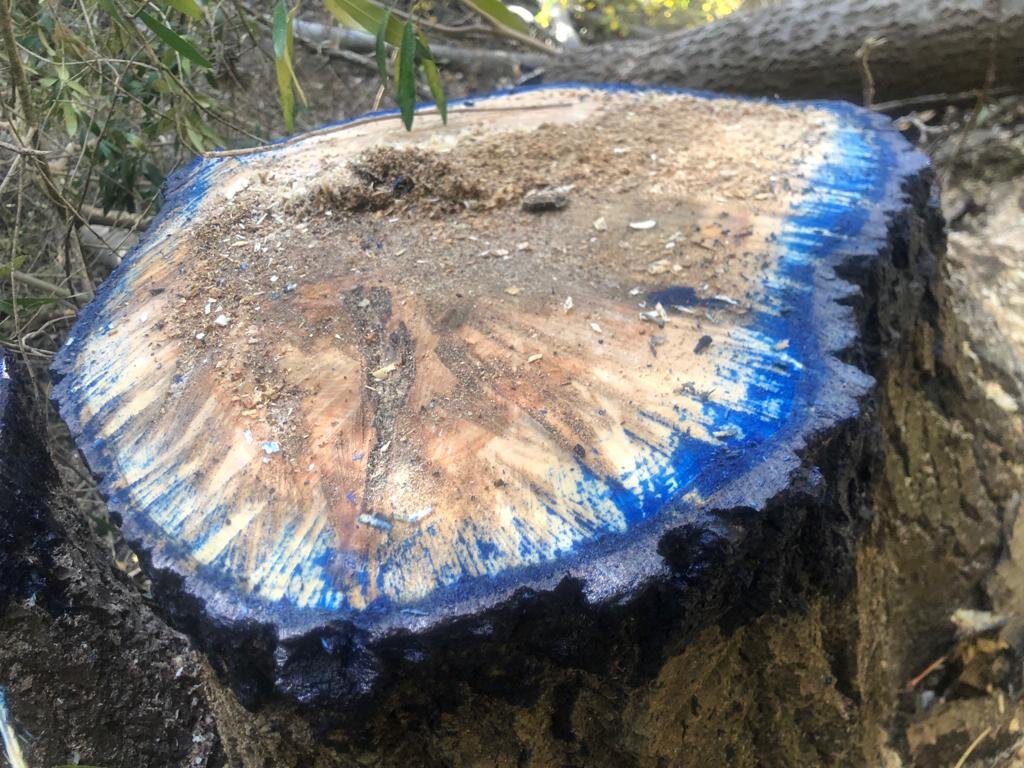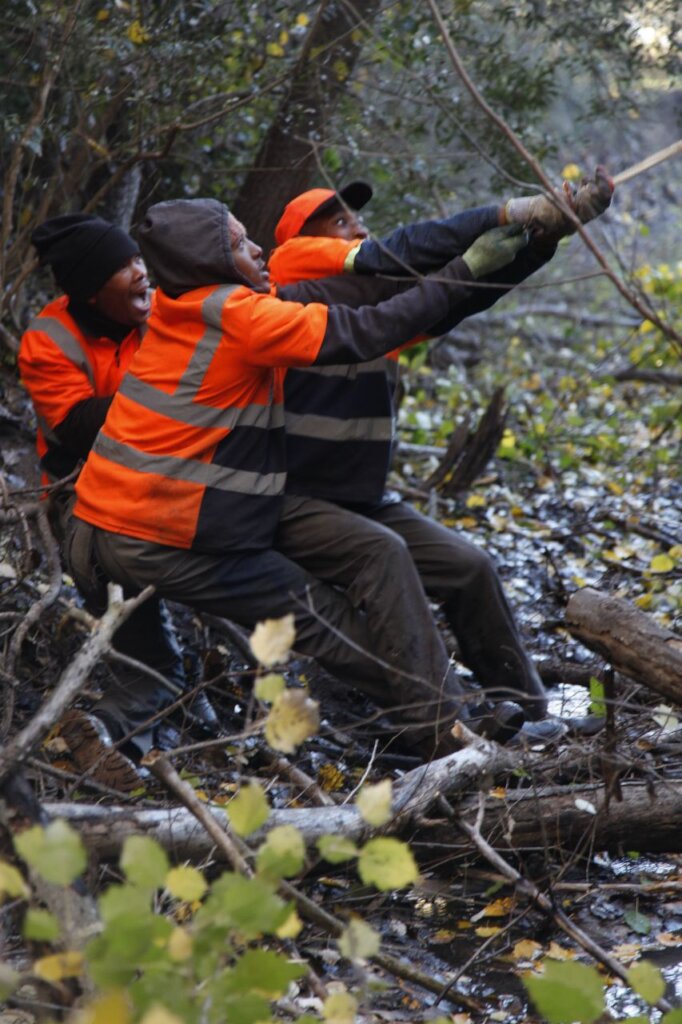By Bridget Johnsen | Project Leader
As Climate Change bites, we must take measures to conserve every drop of water possible. Huge appreciation, especially to Naz and the Dynamix Team, for your part in addressing Climate Change in the Global South through this project. We won't bore you with the statistics of just how much water an adult poplar, pine or blue-gum tree consumes in a day, but these are all alien species in South Africa and guilty as charged!!! Thanks to your wonderful support there will be a whole lot less of them this summer. While we have had floods this month, and our highest winter rainfall so far for the past 30 years, El Nino is still forecast to give us a drought in the coming summer..... we will wait and see!!
We have slowly cleared the Pine and Port Jackson Willow from the part of Paardeberg mountain for which we are responsible. These are the more invasive species of trees, of greater threat to biodiversity due to the heat they generate and their behaviour in a wildfire....the Pines especially, once burning, tend to explode, starting multiple smaller fires. Every year we have a few coming up again, and need to attack them again.
However, this quarter we have devoted our attention to the Poplar alien trees that invade our waterways, and fortunately remain confined to them. Our Alien Clearing team for this work hailed from an area near Franschhoek called Pniel. They arrived smartly dressed with appropriate PPE, but the small team meant they worked slowly. Sometimes the team had to use ropes to ensure the alien trees did not damage indigenous vegetation as they fell. So far, they have cleared half of what we had planned before the BIG rains arrived (see the map of planned work in the attached SCOPE OF WORK)), and now the remainder will have to wait for next autumn. The herbicide applied to the cut stump not only permanently kills the tree underground, but is drawn through the bark into the spreading roots during the fall, when the trees embed nutrients into their roots for winter. This means hopefully, that less sucklings will emerge around the felled trees in the coming summer. We use this emergence and resprouting to assess the accuracy and correct application of the herbicide, so will make a decision towards the end of the year as to whether the team did a good job, and whether to use them to clear the rest of the poplars. We still have significant groves of poplar trees in two streambeds.
The good thing is that the harvested wood is used for erosion management (as demonstrated in previous reports) or for firewood, much needed amongst the workers on our farms. The recent floods have unfortunated carried some of the felled logs into the dam below, via the gushing streams, but we will do our best to recover what remain for use on the various farm roads, again to repair flood damage.
Thank you once again for your unwavering support of our efforts!
Project reports on GlobalGiving are posted directly to globalgiving.org by Project Leaders as they are completed, generally every 3-4 months. To protect the integrity of these documents, GlobalGiving does not alter them; therefore you may find some language or formatting issues.
If you donate to this project or have donated to this project, you can receive an email when this project posts a report. You can also subscribe for reports without donating.
Support this important cause by creating a personalized fundraising page.
Start a Fundraiser